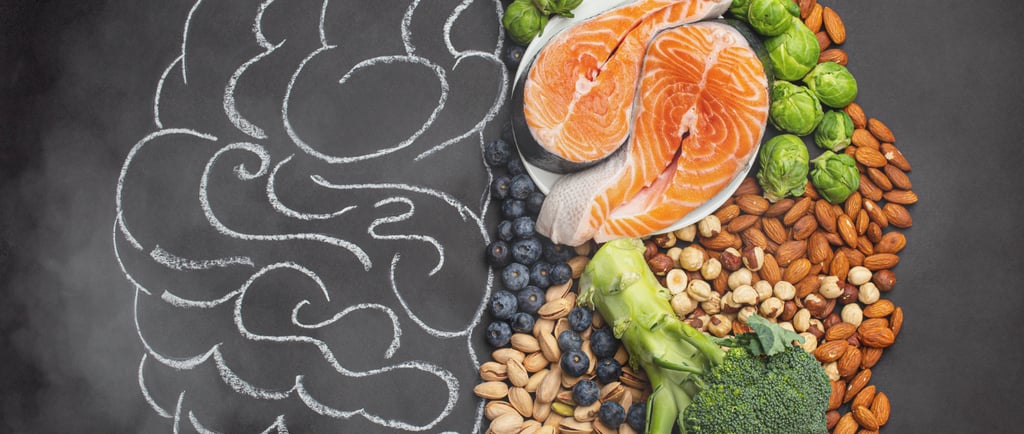The Surprising Source of Your Anxiety and Brain Fog: Your "Second Brain"
PROACTIVE WELLNESS - PREVENTIONVESSEL WELLNESS BLUEPRINT - THE BODYTHE WELLNESS SPECTRUM - HOLISTICTHE LATEST!!


We tend to think of our brain as the sole command center, an isolated organ in our skull running the whole show. But what if I told you there was a second, equally powerful "brain" in your body that profoundly influences your mood, thoughts, and mental clarity?
Meet your gut. The connection between your gut and your brain—known as the Gut-Brain Axis—is one of the most exciting frontiers in wellness science. Decoding this connection is fundamental to achieving a life that is Rich in Wellness, both physically and mentally.
The Communication Superhighway in Your Body
To truly appreciate this connection, we need to look closer. Your gastrointestinal tract is lined with more than 100 million nerve cells, a network so extensive it's called the enteric nervous system, or "the second brain." This isn't just a system for digestion; it's a complex hub of communication that talks directly to the brain in your head. This conversation happens in several amazing ways:
The Vagus Nerve: Think of this as a massive fiber-optic cable running directly from your gut to your brain. It sends signals in both directions, constantly updating your brain on the state of your gut, and vice-versa.
Neurotransmitter Production: Here's the mind-blowing part: Your gut produces a vast array of neurotransmitters, the chemical messengers of the brain. In fact, over 90% of your body's serotonin—the "feel-good" neurotransmitter that regulates mood, happiness, and anxiety—is produced in your gut. So are other key mood-regulators like GABA and dopamine.
The Role of Gut Bacteria: Your gut microbiome, the community of trillions of bacteria living in your gut, are the factory workers. When you feed them well (with fiber), they produce beneficial compounds called short-chain fatty acids (SCFAs) that can strengthen the blood-brain barrier and reduce inflammation, directly protecting your brain.
When Communication Fails: The Dangers of a Neglected Gut
When this intricate system is disrupted—a state called "dysbiosis"—the consequences ripple throughout the body, especially to the brain. An unhealthy gut microbiome, thrown off by stress, poor diet, antibiotics, or lack of sleep, can directly lead to:
Anxiety and depressive symptoms
Brain fog and difficulty concentrating
Mood swings and irritability
Chronic Inflammation: An imbalanced gut can cause low-grade, body-wide inflammation, which is a key driver of mental health disorders.
Nutrient Malabsorption: If your gut isn't healthy, you can't properly absorb the vitamins and minerals your brain needs to function optimally.
Ignoring your gut health is like trying to have a clear phone conversation on a line full of static. The messages just don't get through cleanly, leaving you feeling mentally and emotionally off-balance.
Restoring the Connection: The Benefits of a Managed Gut
The incredible news is that you have the power to clear the static. When you actively manage and support your gut health, the benefits are profound:
Enhanced Mood and Resilience: A balanced gut promotes stable serotonin production, leading to a more positive outlook and a greater ability to cope with stress.
Crystal-Clear Focus: By reducing inflammation and providing the brain with the right signals, you can lift the fog and improve cognitive function.
Better Sleep: Serotonin is a precursor to melatonin, the sleep hormone. A healthy gut can pave the way for more restful nights.
A Stronger Immune System: Since roughly 70% of your immune system resides in your gut, a healthy gut means a healthier you overall.
How to Steward Your Second Brain: A Step-by-Step Guide
Nurturing your gut doesn't have to be complicated. Think of it as tending to a garden with a simple, four-step process.
Step 1: WEED - Remove the Irritants. The first step is to gently remove the things that damage the gut lining and harm beneficial bacteria. This means reducing your intake of highly processed foods, excessive sugar, artificial sweeteners, and any personal food sensitivities you may have.
Step 2: SEED - Add Beneficial Bacteria. Repopulate your gut garden with good microbes. You can do this by incorporating probiotic-rich fermented foods into your diet. Think yogurt (with live cultures), kefir, kimchi, sauerkraut, miso, and kombucha.
Step 3: FEED - Nourish Your Microbiome. Once you have the good bacteria, you need to feed them what they love: prebiotic fiber. This is the food for your microbiome. Find it in delicious whole foods like onions, garlic, bananas, oats, asparagus, apples, and legumes.
Step 4: PROTECT - Maintain a Healthy Environment. Protect your gut from the disruptive forces of modern life. This means prioritizing stress management techniques (like meditation or deep breathing), getting 7-8 hours of quality sleep, and staying hydrated.
Integrating Gut Care into Your Everyday Life
The key to unlocking the benefits of the gut-brain axis is consistency. This isn't a 30-day diet; it's a fundamental shift in how you view your well-being. When you steward the health of your gut, you are directly stewarding the health of your brain. Every meal is an opportunity to reduce inflammation, feed beneficial bacteria, and send a calming, clarifying signal to your brain. This practice of mindful eating and living builds a foundation of resilience that supports you day in and day out.
Quick Tips, Tricks, and Alternate Ideas
Eat the Rainbow: Different colored plants contain different types of fiber and phytonutrients. The more diverse your plant intake, the more diverse and robust your microbiome will be.
Practice Mindful Eating: Chew your food thoroughly. This not only aids digestion but also sends signals to your brain that you are nourishing yourself, which can lower stress.
Breathe Deeply: Before you eat, take 3-5 slow, deep belly breaths. This activates the vagus nerve and switches your body into "rest and digest" mode, optimizing digestion and nutrient absorption.
Consider Bone Broth: Rich in collagen and amino acids like glutamine, bone broth can be soothing and supportive for the gut lining.
Get Moderate Exercise: Regular, moderate movement is great for gut motility and reducing stress. Just be mindful not to overdo it, as extremely intense exercise can be a stressor on the gut.
Conclusion: Your Path to a Holistically Healthy Mind
The state of your mind is not just in your head. It's in every bite of food you take, in how you manage stress, and in the health of the vibrant ecosystem within you. By understanding and honoring the gut-brain axis, you move beyond treating symptoms and begin nurturing the very root of your mental and emotional well-being.
Your call to action is simple. You don't need to overhaul your entire life overnight. Just pick one thing this week. Maybe it's adding a spoonful of kimchi to your lunch, swapping your afternoon soda for a kombucha, or starting your day with a bowl of oatmeal and berries. Start stewarding your second brain today, and unlock a life that is truly Rich in Wellness.


